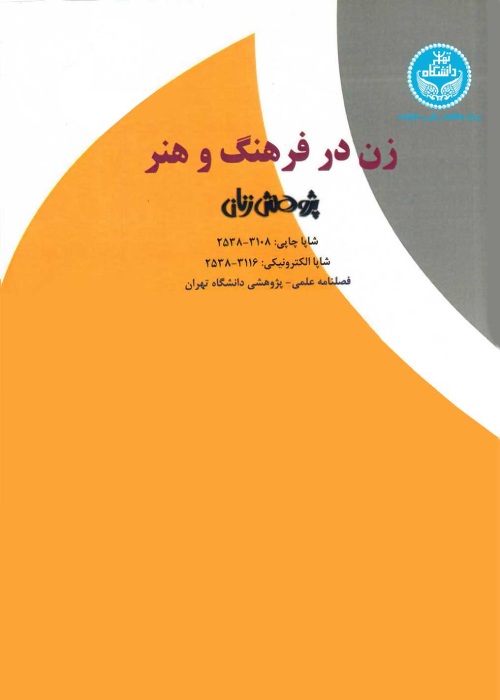The feminism in war context Acccording to Aragon's poems
Abstract:
In this article, Louis Aragon is introduced as a contemporary feminist poet and writer; A poet who engaged simultaneously and identically in the two phenomena, Feminism and Resistance, during the World War II. He, unlike those who consider women as limits to the power of the battlers, praises women in all his works. He explicitly declares that it has been his beloved who has granted him the spirit and vigor to resist and continue living within the war. His themes, styles and examples and, in fact, the major parts of his works are full of Elsa’s feminine presence; and he does so, so exaggeratedly in some eras of his life, that nearly puts all his commitments to his country and nationality in doubt. But these panoramas are not able to mislead the reader who is aware of the depression and censorship atmosphere of the same era; an era which affects the structure and superposes the common contents of all his works. There commences and continues a movement, from Elsa to France, traversing the evocation of other feminine figures, images of beauty and magnificence of culture. Aragon has attributed to France too, all the values he had primarily dedicated to his beloved, as an adorable and lively feminine character. This image is greatly developed in “More beautiful than the Tears”, in which the admiration of one’s homeland is being manifested through the exaltation of a feminine body. Love, herein, finds a dual aspect. It is, at the same time, a human love and the love for one’s homeland; a homeland, of which the flag is defined through the very feminine images. This is the manner of a French poet-writer, who, initiating the Poetry of the Resistance through adopting an implied style so as to seem legal against its contemporary censorship ambiance plays a brilliant role within the war. He impliedly praises France, which is frustrated by the war and summons up his compatriots to save their common love, their homeland, France; which is, per se, well realized in the emblematic eyes of Elsa, his beloved woman.
Language:
Persian
Published:
Journal of WOman in Culture Arts, Volume:3 Issue: 1, 2011
Pages:
25 to 38
magiran.com/p918893
دانلود و مطالعه متن این مقاله با یکی از روشهای زیر امکان پذیر است:
اشتراک شخصی
با عضویت و پرداخت آنلاین حق اشتراک یکساله به مبلغ 1,390,000ريال میتوانید 70 عنوان مطلب دانلود کنید!
اشتراک سازمانی
به کتابخانه دانشگاه یا محل کار خود پیشنهاد کنید تا اشتراک سازمانی این پایگاه را برای دسترسی نامحدود همه کاربران به متن مطالب تهیه نمایند!
توجه!
- حق عضویت دریافتی صرف حمایت از نشریات عضو و نگهداری، تکمیل و توسعه مگیران میشود.
- پرداخت حق اشتراک و دانلود مقالات اجازه بازنشر آن در سایر رسانههای چاپی و دیجیتال را به کاربر نمیدهد.
In order to view content subscription is required
Personal subscription
Subscribe magiran.com for 70 € euros via PayPal and download 70 articles during a year.
Organization subscription
Please contact us to subscribe your university or library for unlimited access!


